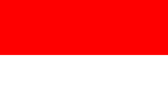
Call 0330 880 3600 Calls may be monitored or recorded. Opening Times.
- TRAVEL INSURANCE
- COVID-19 COVER
- More Options
- Help & Advice
- Existing Customers

Call 0330 880 3600 Calls may be monitored or recorded. Opening Times.

Need help?
UK Customer Services0330 880 3600*
Open Monday to Friday 9:00am to 6pm, Saturday 8:30am to 4pm and closed Sundays.
*Calls are recorded for training and quality purposes.

Official name: Republic of Indonesia
Capital city: Jakarta
Languages spoken: Bahasa Indonesia, plus hundreds of regional languages
Population: Around 280 million
Currency: Indonesian rupiah (IDR)
Time zone: GMT+7 to GMT+9 (varies by region)
Driving side: Left
Climate: Hot and humid year-round, with a wet season from November to March and a dry season from April to October - expect steamy jungles, tropical downpours, and plenty of sunshine
Indonesia is the world’s largest archipelago, made up of over 17,000 islands stretching between Asia and Australia. Famous for Bali’s beaches, Sumatra’s wildlife, and Java’s volcanoes, the country is incredibly diverse both culturally and geographically. From bustling Jakarta and Yogyakarta’s ancient temples to the untouched landscapes of Papua and Komodo National Park, Indonesia offers something for every type of traveller.
Indonesia straddles the equator, covering a vast area between the Indian and Pacific Oceans. Its islands are mountainous and volcanic, with some of the most active volcanoes in the world. The country shares land borders with Malaysia, Papua New Guinea, and East Timor, and maritime borders with several others. Natural hazards include earthquakes, tsunamis, and volcanic eruptions, but these landscapes also create fertile soils and lush biodiversity.
Most visitors fly into Jakarta, Bali (Denpasar), or Surabaya. Domestic flights are common for hopping between islands, though ferries are also widely used. Roads can be congested and chaotic, particularly in cities, while buses and trains provide affordable options for local travel. Ride-hailing apps are popular in urban areas, and scooters are a common way to get around smaller islands.
UK citizens can visit Indonesia visa-free for up to 30 days for tourism. For longer stays, business, or work, visas are required and should be arranged in advance. The British Embassy is in Jakarta, and consular support may be limited in more remote regions.
The Indonesian rupiah (IDR) is the official currency. ATMs are widely available in cities and tourist destinations, though cash is essential in rural areas. Credit cards are accepted in many hotels, restaurants, and shops in urban centres, but less so in remote areas. Bargaining is common in markets and smaller shops.
Healthcare quality varies greatly. Major cities like Jakarta and Bali have private hospitals with good facilities, but rural areas often lack reliable care. Dengue fever and malaria are present in some regions, and mosquito precautions are essential. Tap water is not safe to drink, so bottled or filtered water should always be used. Comprehensive travel insurance is highly recommended, including cover for medical evacuation.